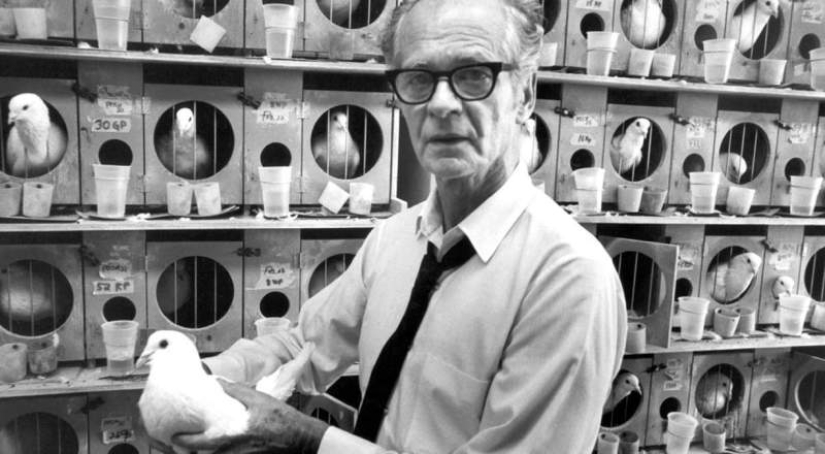Skinner's experiment: what do superstitious people and pigeons have in common?
Each of us has encountered a situation where random events seem to be associated with certain actions. For example, you rubbed the bronze dog's nose at the entrance to the university and got a good grade in the exam. Although this is irrational behavior, resisting the temptation can be difficult. Superstitions have become an integral part of human life since ancient times. It was only in the 20th century that behaviorist B.F. Skinner was able to find a scientific explanation for this phenomenon.

Skinner conducted many experiments with pigeons. He placed the birds in a box with transparent walls, where food was supplied at certain times. The scientist noticed that the pigeons began to repeat the actions that they performed before the last feeding. This could be flapping its wings, walking in a circle, or pecking at a certain place.

It is obvious that the birds associated a specific behavioral strategy with feeding, which occurred at a certain time. Of course, the supply of food had nothing to do with the actions of the pigeons, and they could not influence this process. Operant conditioning, which Skinner used to explain this situation, suggests that the consequences of a behavior influence the behavior itself and the frequency of its occurrence in the future.
The pigeons continued to behave in the same way even when the regular supply of food to the boxes stopped. Skinner admitted that in the case of people it works in a similar way. We try to explain the uncertainty in our lives and, in order to organize the world around us, we often resort to superstitious behavior.
A student, like a dove, may become disappointed when he rubs the nose of a bronze dog. Guaranteed success in the exam can only be achieved through good preparation. On the one hand, superstitious behavior is a negative phenomenon. In general, it reduces the sharpness of critical thinking and clouds an objective view of the situation. In addition, it provokes a refusal to search for all possible factors influencing events in our lives.

But, on the other hand, superstitious behavior can also perform a motivational function. For example, you can make a wish by tossing a coin. Thanks to this, you will notice more positive events throughout the day. However, do not forget that “after” does not always mean “as a result”.
Recent articles

It's high time to admit that this whole hipster idea has gone too far. The concept has become so popular that even restaurants have ...

There is a perception that people only use 10% of their brain potential. But the heroes of our review, apparently, found a way to ...

New Year's is a time to surprise and delight loved ones not only with gifts but also with a unique presentation of the holiday ...